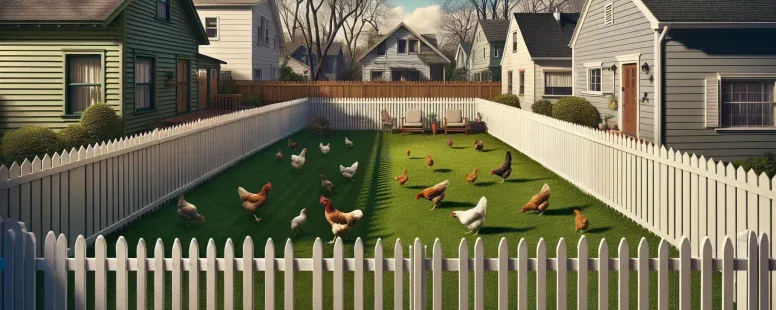My Neighbor’s Chickens Are in My Yard: Understanding and Addressing the Situation
You’ve noticed a peculiar but persistent issue: your neighbor’s chickens are frequent visitors to your yard. This seemingly quaint scene can quickly devolve into a challenge if unaddressed. From potential property concerns to maintaining amicable neighborly relations, knowing how to handle such situations effectively is vital. In this text, we’ll guide you through understanding your rights, assessing impacts, and finding diplomatic and legal resolutions to ensure your property and partnership with neighbors stay intact.
Understanding the Legal Perspective
Laws and Regulations About Domestic Animals
Legal frameworks vary by location, detailing rules about free-ranging domestic animals like chickens. Investigate local ordinances or agricultural codes to understand what responsibilities owners hold.
Rights and Responsibilities of Property Owners
As a property owner, you have rights to undisturbed usage of your land. Simultaneously, responsibilities include addressing conflicts in a legally and ethically sound manner before escalating to formal proceedings.
Assessing the Impact on Your Property
Potential Damages and Inconveniences
Chickens can damage vegetation, disturb soil, and create noise, potentially impacting your yard’s functionality. Evaluate the extent of these inconveniences to determine the gravity of the issue.
Documenting the Activities of the Chickens
Maintain a record of instances, with photographs or logs, to substantiate your claims. This data will be useful in finding resolutions substantively.
Resolving the Issue Amicably with Your Neighbor
Initiating a Constructive Conversation
Communicate your observations with your neighbor, expressing concerns while suggesting mutual understanding. A diplomatic approach can mend misunderstandings effectively.
Negotiating Solutions for the Problem
Suggest shared agreements, like coop modifications to enhance containment. Be open to compromises that address your concerns and respect their circumstances.
Exploring External Resolution Methods
Mediation and Community Resources
Local community boards or neighborhood mediation services often help resolve disputes like this affordably and quickly.
Involving Legal Support if Necessary
In unresolved cases, seeking legal advice or engaging professionals to address the situation ensures adherence to lawful solutions.
Preventing Future Incidents
Installing Physical Barriers or Deterrents
Erecting well-maintained fences around your property lines may deter unintentional visits by livestock.
Collaborating on Long-Term Solutions with Your Neighbor
Explore ways for co-managed responsibilities or investments improving animal containment on a long-term scale.
- Where Can I Promote a Home-Based Garden Service? Top Online & Offline Strategies to Grow Your Business - November 16, 2025
- What Permits Do I Need for a Backyard Catering Business in the US? Complete Guide 2024 - November 15, 2025
- Is It Illegal to Shoot Your Own Dog? - November 15, 2025




